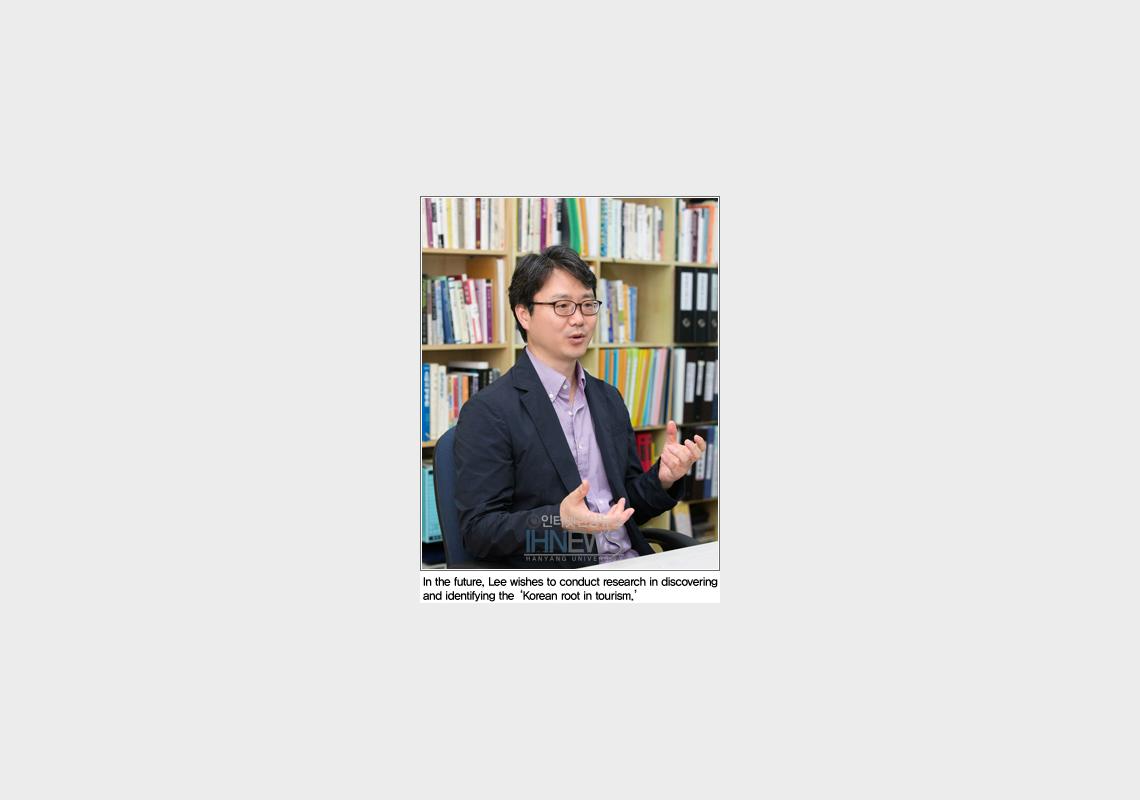Professor Hoon Lee of the School of Tourism is the director of the Laboratory of Cyber Leisure Tourism at Hanyang University (HYU). The laboratory is renowned for being the most active university research center in Korea, performing numerous governmental policy implementation researches.
Among his publications, "Analyzing leisure experience and existential authenticity within virtual reality through the concept of simulacre" was selected as the best paper in the 72nd Tourism Sciences Society of Korea International Conference.
Since he began his work at HYU, Lee said that his research in tourism for the disabled has been one of the most impressive experiences for him. Commissioned by the Ministry of Culture, Sports and Tourism, Lee was able to conduct national research with handicapped associations.
"There was a lack of in-depth research in this field and I believe Korea should endeavor to realize 'tourism for all,' which provides easy access for everyone," Lee said. Having published more than 8 articles, he recently established medium-and long-term plans to improve the current condition of Korea's tourism for the disabled.
He is also involved in efforts to reform local governmental policies. For instance, prior to his efforts, most middle and/or high school field trips were done on a mass scale whereby students of the same year from a number of schools congregated at the same location, at the same time. As a result of the huge and sudden influx of these groups, field trip locations have tended to be limited.
In an effort to solve this continuing problem while making field trips more meaningful for the students, Lee proposed a solution, which was to provide small sized themed field trips. By limiting the group size to a maximum of three classes, students are now able to travel to more diverse and interesting areas.
First implemented by the Seoul Metropolitan Government, due to the success of Lee's suggestion, other local governments such as the GyeongGi Provincial government have also adopted Lee's idea.
Another effort of Lee's involves the notion of fair trade, which has been gaining more awareness by the general public. "Fair tourism" emphasizes the need for cooperative and coexisting relationships among tourists, local residents, the environment, and tourism businesses.
To implement the practice of fair trade in tourism in Korea, Lee first searched for an ideal location which would be an area that is a major tourist attraction but is problematic to local residents. The Bukchon district in Seoul was identified as an ideal candidate. It has been known for its cultural characteristics, namely its hanok (traditional Korean houses) but the residents have been suffering from excessive noise and illegal intrusion by developers
Lee is currently working with the Ministry of Culture, Sports and Tourism and the Korea Tourism Organization to resolve the conflict and subsequently successfully apply the notion of fair tourism to the Bukchon district.
When asked about his view of Korea's tourism industry, Lee stated, "Last year, more than 10 million tourists visited Korea. In terms of quantity, we were indeed successful. However, now we need to focus on quality. In order to do so, we must develop attractive programs that can touch the hearts of tourists, which would in turn prolong their stay, broaden their areas of visitation, and increase their consumer spending."
Lee regards Singapore as a benchmark country due to its successful performance compared with its small territory. "Korea should understand how Singapore is attracting tourists, and the way they are doing it is by promoting accessibility to surrounding countries such as Thailand, Malaysia, and Indonesia. A collective marketing effort by Korea, China, and Japan should be done in order to bring in more tourists from Western countries," he said.
Lee added, "At the moment, the academic field of tourism in Korea focuses mainly on theories and research conducted in Western countries, so I would like to conduct my own research on discovering and identifying 'Korean roots in tourism'."
Rather than simply purchasing products, Lee believes that the reason for foreign tourism in Korea is amusement. Thus, he hopes to identify the factors that lead to amusement under the theme of 'Korean roots in tourism'.
Lee advises HYU students saying, "Whether it is hardship or happiness that we face in life, every moment can be useful. Emotions and experiences can become a foundation for our lives. When you are happy, enjoy that moment. When you feel sad, do not ignore it. Be truthful to your own emotions. With pride, face hardships and execute your plans. By doing so, you will be able to accomplish your goals.
Written by Jisoo Lee ([email protected]) for Internet Hanyang News
Photo by Kyujin Jung



